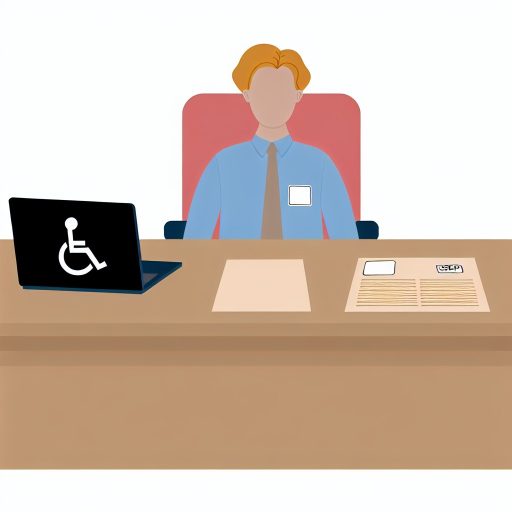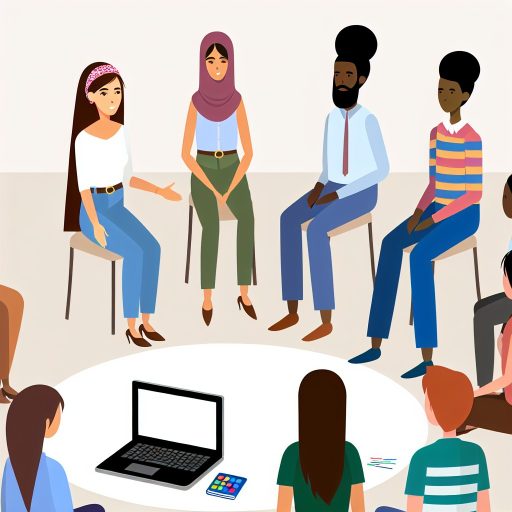Introduction
Public health social workers play a crucial role in promoting health and well-being within communities.
They need to possess several essential skills to be successful in this field.
These skills impact not only the individual social worker but also the quality of care provided.
Clients in need benefit directly from competent support in the public health sector.
Strong communication skills
Effective communication is crucial for public health social workers to build relationships.
They advocate for clients.
They coordinate care effectively.
Importance of effective communication
- Establishing rapport with clients
- Building trust and credibility
- Enhancing collaboration with colleagues and other healthcare professionals
- Ensuring clarity in conveying information and instructions
By being good communicators, public health social workers create a safe and supportive environment for their clients.
This environment fosters trust and encourages open dialogue.
Such dialogue leads to better outcomes for those in need.
Advocating for clients’ needs
- Expressing clients’ concerns to other healthcare professionals
- Negotiating on behalf of clients for necessary services and resources
- Empowering clients to voice their needs and preferences
Communication skills enable public health social workers to be effective advocates for their clients.
By clearly articulating clients’ needs and concerns, social workers ensure clients receive support and resources.
Coordinating care
- Collaborating with multi-disciplinary teams
- Facilitating smooth transitions between different healthcare providers
- Ensuring continuity of care for clients
Public health social workers play a critical role in coordinating care for their clients.
They communicate effectively with stakeholders in a client’s care.
This communication ensures everyone is on the same page and working towards common goals.
When it comes to being a successful public health social worker, cultural competency is a vital skill that cannot be overlooked.
In today’s diverse society, understanding and respecting different cultural backgrounds and beliefs is essential for providing effective services.
Significance of Understanding Diverse Cultural Backgrounds
- Knowing cultural nuances can help build trust and rapport with clients.
- It allows social workers to tailor interventions to meet the unique needs of individuals.
- Understanding cultural practices can prevent misunderstandings and conflicts.
Being culturally competent means being aware of one’s own biases and prejudices and how they may impact interactions with clients.
It requires empathy, openness, and a willingness to learn about other cultures without judgment.
Role of Cultural Competency in Addressing Health Disparities
- Cultural competency helps in recognizing and addressing barriers to healthcare access.
- It allows social workers to provide culturally sensitive care that is respectful of clients’ beliefs.
- By understanding cultural differences, social workers can bridge communication gaps.
Health disparities exist when certain populations face higher rates of diseases or poorer health outcomes due to various factors, including socioeconomic status, race, and cultural background.
Transform Your Career Today
Unlock a personalized career strategy that drives real results. Get tailored advice and a roadmap designed just for you.
Start NowCultural competency plays a key role in addressing these disparities and promoting health equity.
Public health social workers who are culturally competent are better equipped to engage with diverse communities, establish trust, and deliver services that are responsive to the unique needs of individuals.
By recognizing and embracing cultural diversity, social workers can contribute to improving health outcomes and reducing disparities in underserved populations.
Delve into the Subject: Advocacy Role of Disability Services Coordinators
Empathy and compassion are essential qualities for a successful public health social worker.
Let us explore why these skills are crucial in this field.
Importance of Empathy
- Empathy allows social workers to truly understand clients’ experiences.
- It helps in building a strong rapport with clients and gaining their trust.
- Empathizing with clients fosters a supportive and non-judgmental environment.
- By putting oneself in the clients’ shoes, social workers can provide more effective assistance.
Supporting Clients Through Challenges
- Empathy enables social workers to acknowledge and validate clients’ emotions.
- It helps in creating personalized and client-centered interventions.
- Understanding clients’ perspectives aids in developing tailored solutions to their problems.
- Empathy forms the foundation for meaningful and impactful client interactions.
Role of Compassion
- Compassion drives social workers to advocate for social justice on behalf of their clients.
- It motivates social workers to address underlying systemic issues that impact public health.
- Compassion fuels the passion for creating positive change in individuals and communities.
- It compels social workers to work towards policy changes that promote equity and fairness.
Advocacy for Social Justice and Policy Changes
- Compassion pushes social workers to be vocal about injustices and inequalities in society.
- It encourages social workers to engage in community organizing and activism.
- By advocating for policy changes, social workers can create lasting impact at a systemic level.
- Compassion transforms empathy into action, driving social workers to make a difference.
Empathy and compassion are not just soft skills but essential tools for public health social workers.
These qualities allow professionals in this field to connect with clients on a deeper level.
They enable effective support and advocacy for meaningful change in society.
Gain More Insights: Innovative Approaches in Family Support Services
Problem-solving skills
Social workers in public health must possess strong problem-solving skills.
They use these skills to address complex issues impacting community health.
Problem-solving skills help improve health outcomes for individuals, families, and communities.
Importance of critical thinking in social work
- Problem-solving skills are key in navigating public health issues.
- Social workers must think critically to assess situations effectively.
- Without critical thinking, addressing root causes of health disparities is difficult.
- Applying critical thinking helps identify innovative solutions to public health challenges.
- Critical thinking enables challenging assumptions and exploring new perspectives.
Using problem-solving skills to tackle public health challenges
- Social workers analyze data and trends to uncover health disparities.
- Collaboration with healthcare and community groups supports comprehensive interventions.
- Problem-solving skills help design programs tailored to specific community health needs.
- Social workers assess intervention effectiveness and adjust based on data analysis.
- They advocate for policy changes to remove systemic barriers to health equity.
Problem-solving skills are essential for public health social workers addressing complex community health challenges.
Developing critical thinking allows social workers to contribute meaningfully to health outcome improvements.
These skills also play a major role in promoting equity within the public health field.
Find Out More: Essential Resources for Housing Coordinators
Collaboration and Teamwork
- Emphasize the value of collaboration with interdisciplinary teams and community partners.
- Working collaboratively can enhance the impact of public health interventions and programs.
- Collaboration enables social workers to tap into the expertise of different professionals.
- By working with diverse team members, social workers can gain new perspectives.
- Collaborating with community partners ensures that interventions are culturally sensitive.
- Teamwork allows for the pooling of resources, leading to more effective interventions.
- Social workers can leverage the strengths of each team member to address complex issues.
- Collaborating with experts in various fields can lead to innovative solutions.
- Interdisciplinary teams can provide holistic care, addressing a wider range of social determinants.
- Working collaboratively fosters a sense of community and shared responsibility for public health outcomes.
Discover More: Interview Questions for Human Services Assistant Positions

Advocacy and Leadership
Public health social workers play a crucial role in advocating for vulnerable populations and marginalized communities.
They serve as the voice for those who may not have the resources or ability to speak up for themselves.
Transform Your Career Today
Unlock a personalized career strategy that drives real results. Get tailored advice and a roadmap designed just for you.
Start Now- Advocacy involves standing up for the rights of individuals and communities who are often overlooked or discriminated against in society.
- Public health social workers work to address systemic barriers and inequities that contribute to health disparities among different populations.
- They advocate for policies and interventions that promote health equity and social justice for all members of society.
Furthermore, strong leadership skills are essential for public health social workers to effectively bring about positive change.
They advance social justice initiatives through their leadership efforts.
- Leadership skills enable public health social workers to inspire and motivate others to work towards a common goal of promoting health and well-being.
- Effective leaders in this field have the ability to influence decision-makers and policymakers to prioritize the needs of vulnerable populations.
- They also possess strong communication skills to effectively convey the importance of public health initiatives and advocate for necessary resources.
Advocacy and leadership are essential skills for public health social workers to make a meaningful impact on health and well-being.
By advocating for marginalized communities and exercising strong leadership, these professionals work towards a more equitable and just society for all.
Flexibility and Adaptability
- Flexibility is crucial in responding to changing needs and priorities in public health practice.
- Social workers must be able to pivot quickly to address emerging issues in the community.
- Being adaptable allows social workers to be more effective in navigating complex and dynamic environments.
- It enables them to adjust their approaches based on the unique circumstances of each situation.
Importance of Flexibility in Public Health Practice
- Public health is constantly evolving, and priorities can shift rapidly based on emerging threats.
- Social workers need to be able to adapt to these changes to continue effectively serving their communities.
- Flexibility allows for a more proactive and responsive approach to public health challenges.
- It enables social workers to tailor their interventions to meet the specific needs of individuals and communities.
Benefits of Adaptability for Social Workers
- Adaptability empowers social workers to think on their feet and find creative solutions to complex problems.
- It fosters resilience and the ability to navigate uncertainty with confidence.
- Being adaptable means social workers can easily collaborate with a variety of professionals in multidisciplinary teams.
- It promotes a growth mindset and a continuous learning approach to professional development.
Strategies to Enhance Flexibility and Adaptability
- Engage in ongoing training and professional development to stay current with best practices in public health.
- Seek out opportunities to work on diverse projects that require different approaches and skills.
- Practice mindfulness and self-care to reduce stress and enhance resilience in the face of challenging situations.
- Build a strong support network of colleagues and mentors who can provide guidance and advice when needed.
Essential Skills for Public Health Social Workers
Essential skills for public health social workers include communication.
Empathy is another crucial skill for providing quality care and support.
Developing cultural competence helps social workers address diverse community needs.
Critical thinking enables effective problem solving in complex health situations.
These skills play a significant role in addressing social determinants of health.
They also promote overall well-being among individuals and communities.
Continuous Development for Meaningful Impact
Public health social workers must continuously develop and hone their skills.
Being proficient in these areas allows effective engagement with clients.
Building trust empowers individuals to make positive changes in their lives.
Mastery of these skills leads to improved outcomes for society as a whole.
Additional Resources
Standards and Indicators for Cultural Competence in Social Work …
Undergraduate, Graduate & Online Degrees | Southern Oregon …




